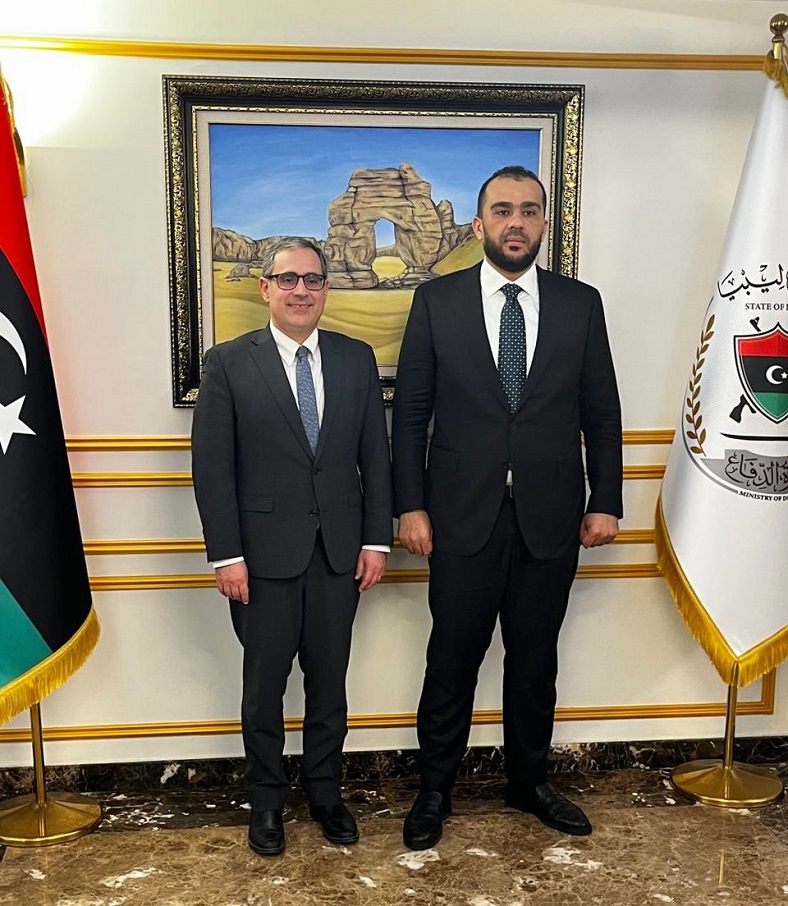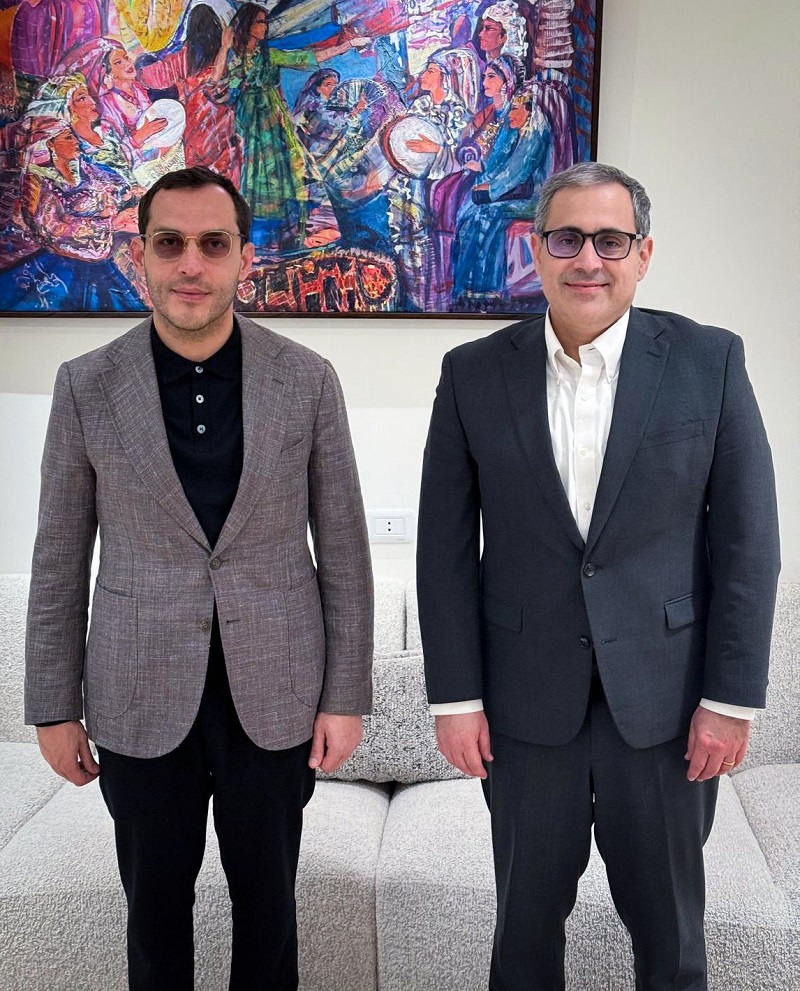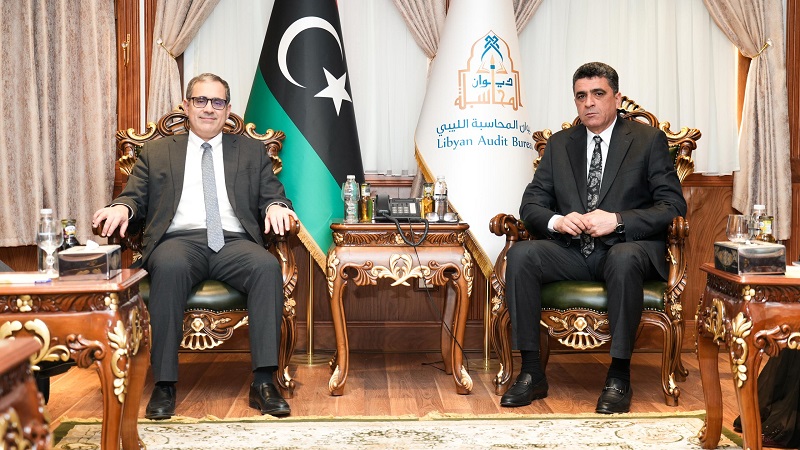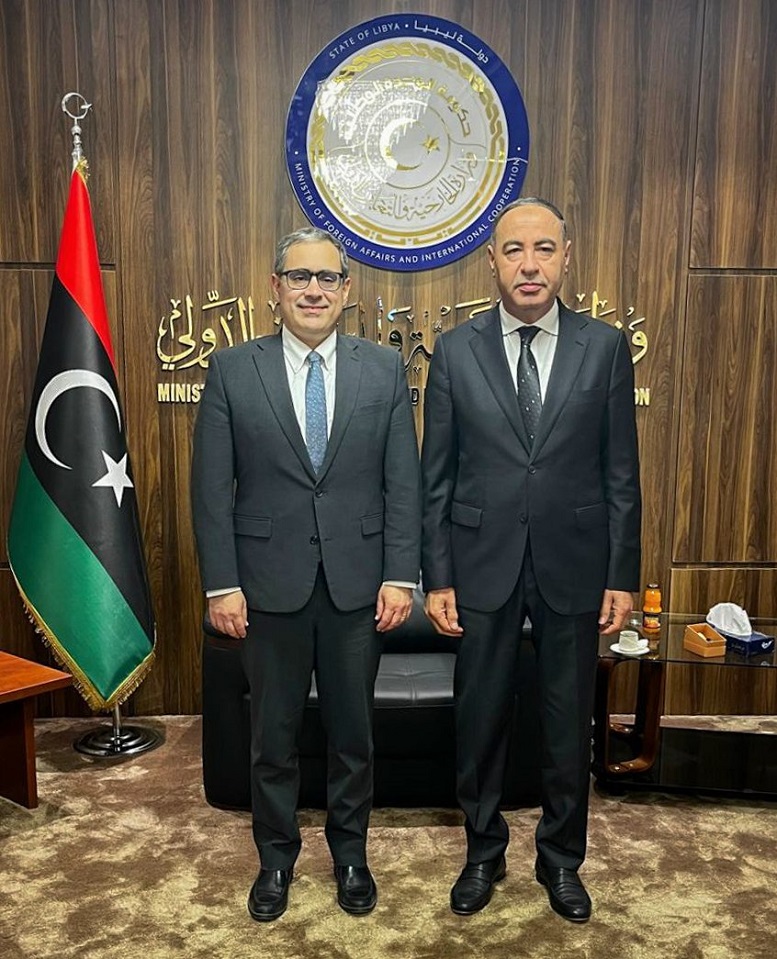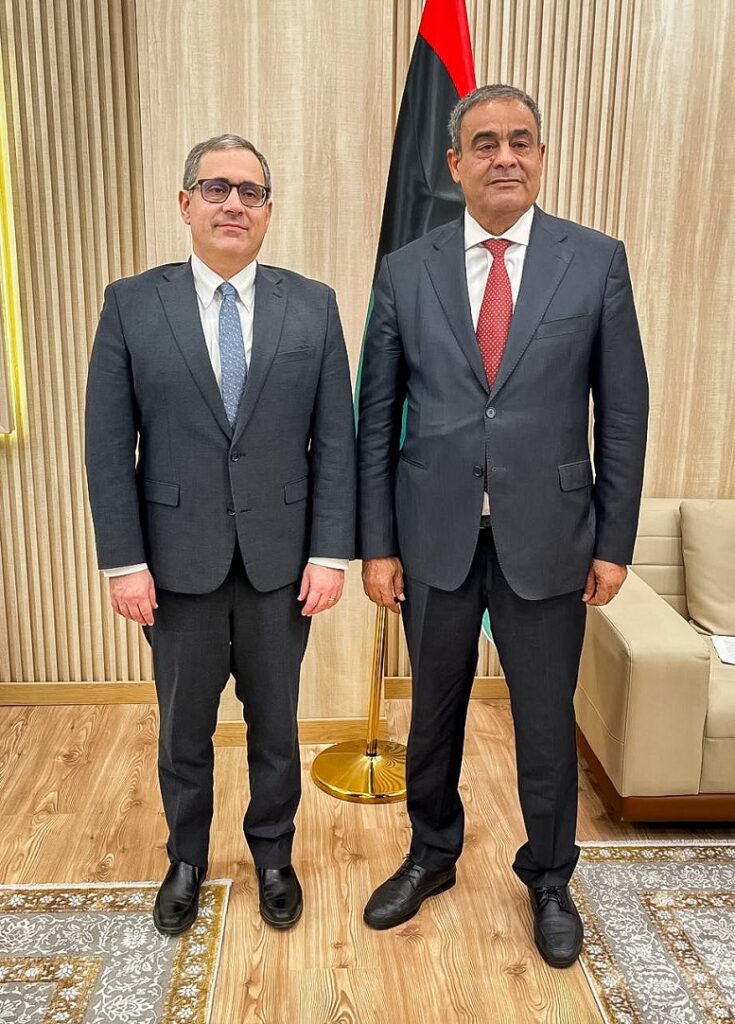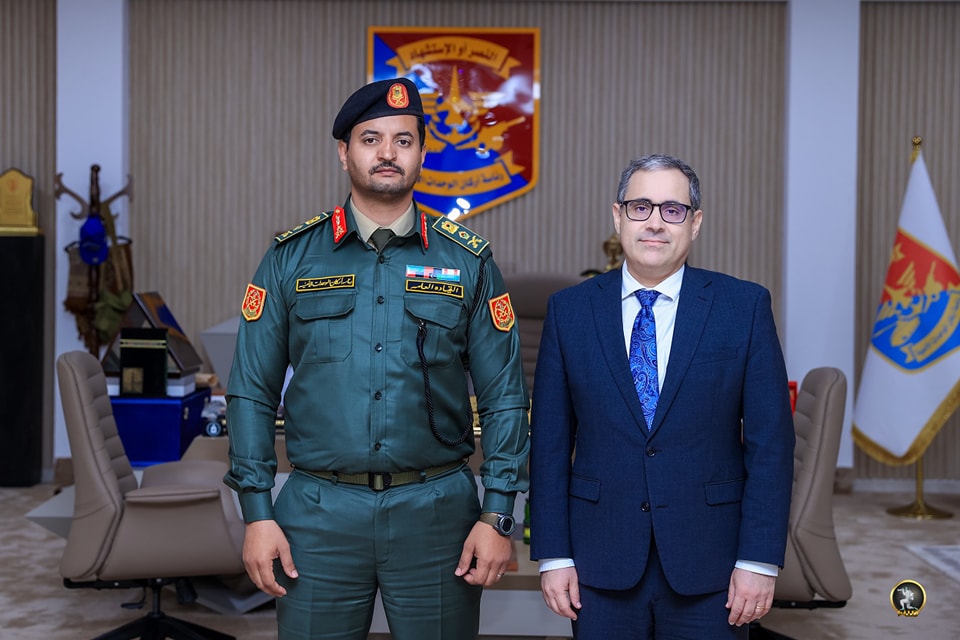The Tripoli Post
Benghazi— As part of the ongoing United States’ efforts to monitor the political and military affairs in Libya, the US Charge d’Affaires Jeremy Berndt has been for the past few days making the usual bi-weekly and monthly rounds on Libyan military and political officials in both eastern and western Libya.
He has stressed, as usual, that Washington will continue to engage with military officers in all parts of Libya with the aim to “encourage” the unification of military institutions.
Mr. Berndt started this round with meeting Lieutenant General Khaled Haftar, the Chief of Staff of Security Forces of the Libyan National Army (LNA), on 9 April in Benghazi where both men discussed US-Libya security cooperation, according to a statement on the US Embassy in Libya’s X platform.
“Thank you Lieutenant General Khaled Haftar for receiving me today in Benghazi. We discussed US-Libya security cooperation. The United States will continue to engage with military officers in all parts of Libya and to encourage Libyan efforts to unify military institutions,” the statement said.
Berndt said that the existence of “unified, professional security institutions are essential for stability, lasting peace and increased prosperity in Libya”.
This is the second meeting between Haftar and Berndt in 2025, following their meeting last January, where they discussed “US support for efforts to unify military institutions and enhance the capabilities of security forces in Libya”.
However, the American Charge d’Affaires did not mention any tangible and/or concrete steps or mechanisms that Washington may undertake in order to “really” encourage the ever talked about unification of security institution, nor has it provided some sort of a timetable to reach that end.
US diplomats as well as US top military commanders have been active making repeated visiting rounds and meetings with the same senior Libyan political and military officials claiming to discuss vital issues regarding the Libyan security, stability and prosperity but they rarely share with the media any substance coming out of these meetings.
It is also noticeable that Libyan officials very rarely discuss in public what went on between them and their American guests or what was their position regarding Libya’s vital issues vis-à-vis their American counterparts during these meetings.
Here is an example of how the US Embassy in Libya reports on its X platform the meetings between the US Charge d’Affaires Jeremy Berndt and senior Libyan officials during the last few days:
On 11 April, Charge d’Affaires Jeremy Berndt: “I am grateful to Deputy Defense Minister Abdulsalam Zubi for hosting me yesterday in #Tripoli. We discussed ways to strengthen US-Libya security cooperation. The United States will continue to engage Libyan military officials across the country and to encourage Libyan efforts to unify security institutions.”
On 10 April, “This evening in #Tripoli, I had a very good discussion with Ibrahim Dabaiba, National Security Advisor to the Prime Minister. We exchanged views on the need for effective measures t shore up #Libya’s economic stability and create the conditions for increased prosperity and economic opportunity. We also noted the importance of @UNSMILibya’s role in supporting Libya-led efforts to overcome political divisions.”
On the Eid Al Fitr eve on 29 March, Mr. Berndt held another meeting with Ibrahim Dabaiba: “I was honored to host Ibrahim Dbeibeh, National Security Advisor to the Prime Minister, last night at my residence in Tunis. We had a productive discussion about bilateral ties between Libya and the United States, including ways to promote economic cooperation and the prosperity of both our countries. We also noted the importance of UNSMIL’s efforts to advance the political process and of achieving lasting stability, security and peace in Libya.”
On 10 April, “It was a pleasure meeting with Libyan Audit Bureau Chairman Khaled Shakshak today in #Tripoli. The Audit Bureau has an essential role in enhancing transparency and accountability. The independence and integrity of #Libya’s technocratic institutions is key to stability and prosperity.”
“I appreciated the opportunity to meet with Acting Foreign Minister Baouer today in #Tripoli. We reviewed ways to strengthen bilateral ties between #Libya and the United States, as well as the vital role of @UNSMILibya in helping Libyans overcome divisions and advance the political process.”
“Thank you Financial Advisor to the PM and Minister of Transportation Mohamed Al-Shahoubi for welcoming me today in #Tripoli. We had a good discussion about recent economic developments in #Libya and opportunities for enhanced US-Libya cooperation in the transportation and other important sectors to help make both our countries more prosperous”.
On 9 April, Charge d’Affaires Jeremy Berndt: “Thank you Lieutenant General Khaled Haftar for receiving me today in Benghazi. We discussed US-Libya security cooperation. The United States will continue to engage with military officers in all parts of Libya and to encourage Libyan efforts to unify military institutions. Unified, professional security institutions are essential for stability, lasting peace and increased prosperity in Libya.”
“I was very happy to meet with the Fab Lab Libya team in Benghazi and learn more about their inspiring work helping young Libyan engineers and programmers. I am amazed by the organization’s accomplishments, and I believe the next generation of Libyans will be able to achieve much, much more through strengthened partnership with the dynamic US tech sector. It was also great to connect with a TechWomen alumna and active Fab Lab member, and hear how she’s helped expand the organization’s reach since her participation in the program.”
Yet the current deep Libyan financial and economic crisis that is hurting citizens and bankrupting the country as a result of bad governance, corruption and divided government institution seem to have not been worth discussing in these announced many meetings.
By Friday evening, it is most likely that the US Charge d’Affaires in Libya would be flying back to Tunis, Tunisia where he officially resides, far away from a Libyan capital that is engulfed by many problems the least of which consistent traffic jams all the time all over the city.
Nevertheless, the only ones to blame the chaotic situation of Libya are the same Libyan officials mentioned above and many more like them who have been unable to agree on a political process that quickly leads to general parliamentary and presidential elections to end the prolonged crisis.
